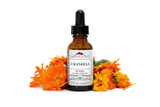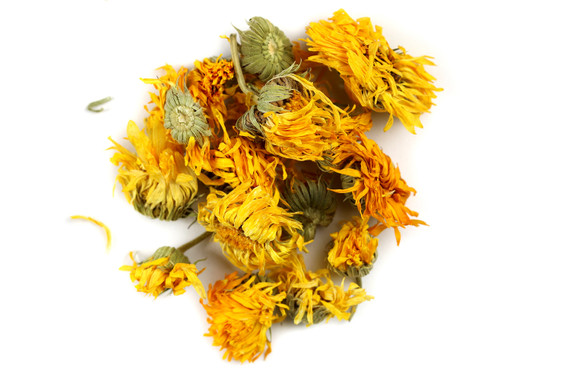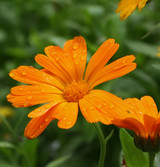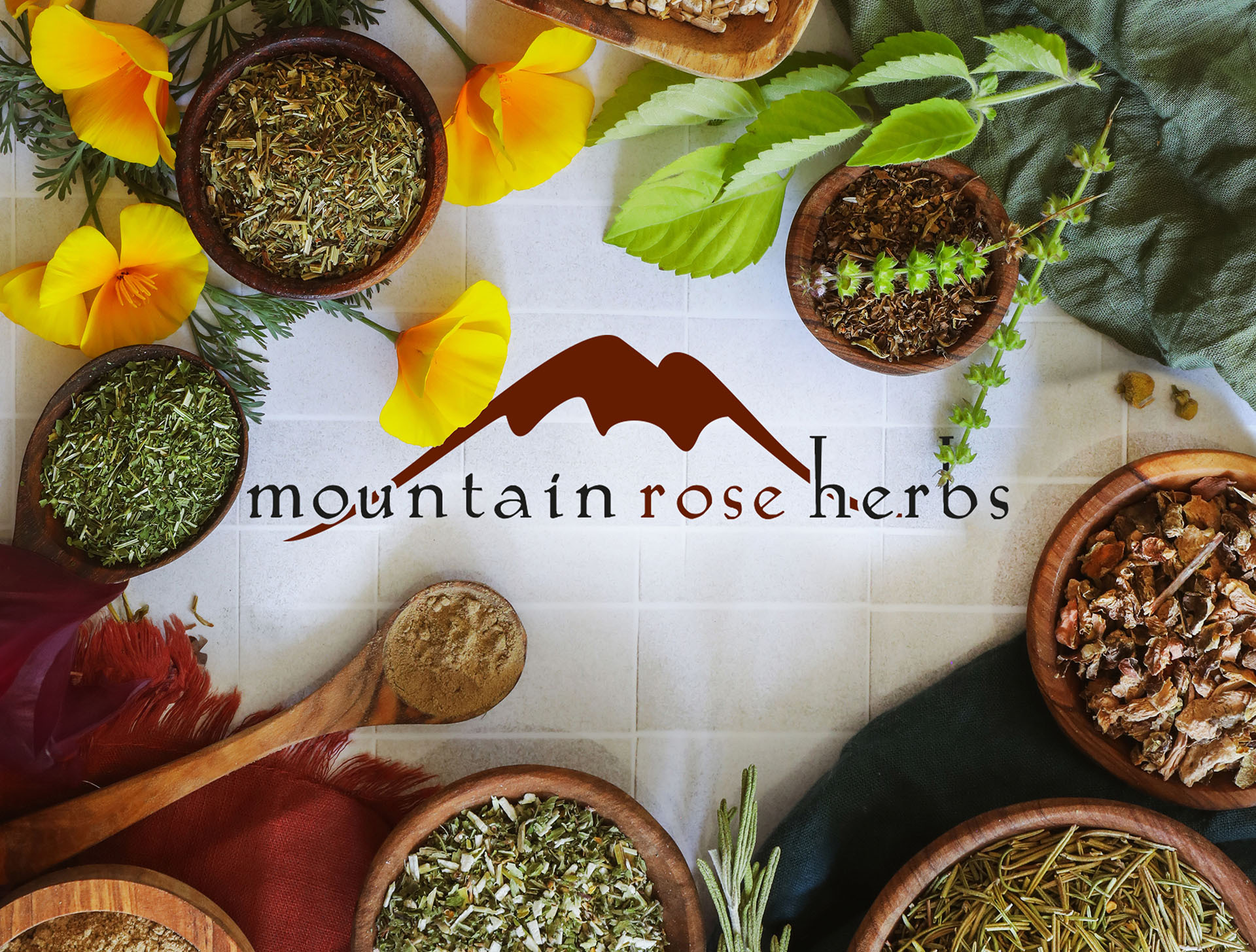Calendula is a well-known herb and popular ornamental garden plant that has been used for centuries as food, a dyeing agent, ceremonially, as well as topically and internally for its healthful qualities. This uplifting plant bears an orange to yellow daisy-like flower and is naturalized throughout most of the world. Calendula is also referred to as marigold or pot marigold and is employed by many herbalists for its beneficial properties.
Calendula officinalis bears the characteristic daisy-like flowers of other members of the Asteraceae family to which it belongs. An annual herb, calendula is known to display its cheerful flowers for most of the spring and summer. Native to southern Europe, the Mediterranean, and in the region spanning the Canary Islands to Iran, calendula is now naturalized throughout the world and is commonly grown in gardens. Easy to spot, calendula has bright orange to yellow terminal flower heads and pale green leaves. The best time to harvest flowers is in the summer, in the heat of the day when the resins are high and the dew has evaporated. Flowers can be carefully dried at ambient or low temperatures in order to keep their vibrant color.
For hundreds of years, calendula was utilized in traditional European herbalism for wellness support and more. In medieval Europe, calendula was widely available and was known as “poor man’s saffron” as it was used to color and spice various foods. Nicholas Culpepper mentioned using calendula juice mixed with vinegar as a rinse for the skin and scalp and that a tea of the flowers comforts the heart. In the Americas, Native Americans employed calendula for occasional digestive support. This beneficial flower was also employed in Ayurveda and Traditional Chinese Medicine (TCM). According to Ayurvedic healing principles, calendula is considered energetically cooling and has a bitter, pungent taste. In TCM, the flower is referred to as jin zhan ju and is considered energetically neutral and drying and is often used in external applications. Many of these traditional uses mirror our contemporary applications of this plant.
Folklorically, calendula is associated with the sun and the fire element. Some believe calendula to imbue magical powers of protection and clairvoyance. An ancient practice was to string flowers above doorposts to keep evil out of the home and to place flowers under the bed to protect one while sleeping. Harvesting calendula flowers under the noonday sun has been tradition for many herbalists who abide by the age-old adage that doing so will strengthen and comfort the heart.
We use fresh, organic calendula flowers in our liquid extract. Made in small batches, our expert team has control over the entire maceration processes to ensure the highest quality. Our calendula tincture is slightly bitter with a light floral taste and is often taken in juice or water or used as a mouth rinse. Calendula extract can also be combined with other herbs to create individualized formulas including red clover extract, marshmallow root extract, and lemon balm extract. Try adding a squirt or two of the extract as an uplifting component to warming or immune supporting teas such as blossoms of health and winter spice tea.
Ingredients
Organic alcohol, water, and fresh organic calendula flowers.
Packaging & Shipping
• 1 oz., 2 oz., and 4 oz. extracts come in amber glass bottles with a dropper.
• 8 oz. and 16 oz. sizes come in amber glass bottles with a plastic screw cap and do not include a dropper.
• 32 oz. extracts come in plastic bottles with a plastic screw cap.
Precautions
Persons with allergies to other members of the Asteraceae family (such as feverfew, chamomile, or Echinacea species) should exercise caution with calendula, as allergic cross-reactivity to Asteraceae plants is common. We recommend that you consult with a qualified healthcare practitioner before using herbal products, particularly if you are pregnant, nursing, or on any medications.
This information has not been evaluated by the Food and Drug Administration. This product is not intended to diagnose, treat, cure, or prevent any disease. For educational purposes only.









